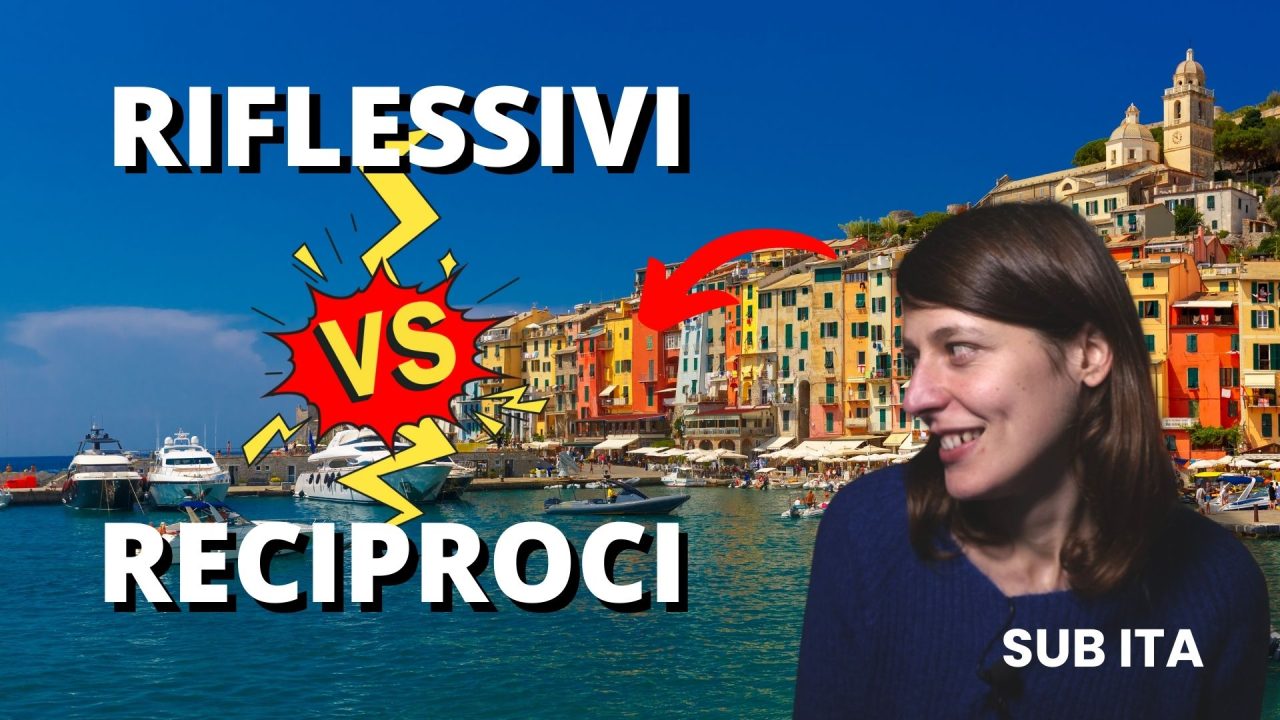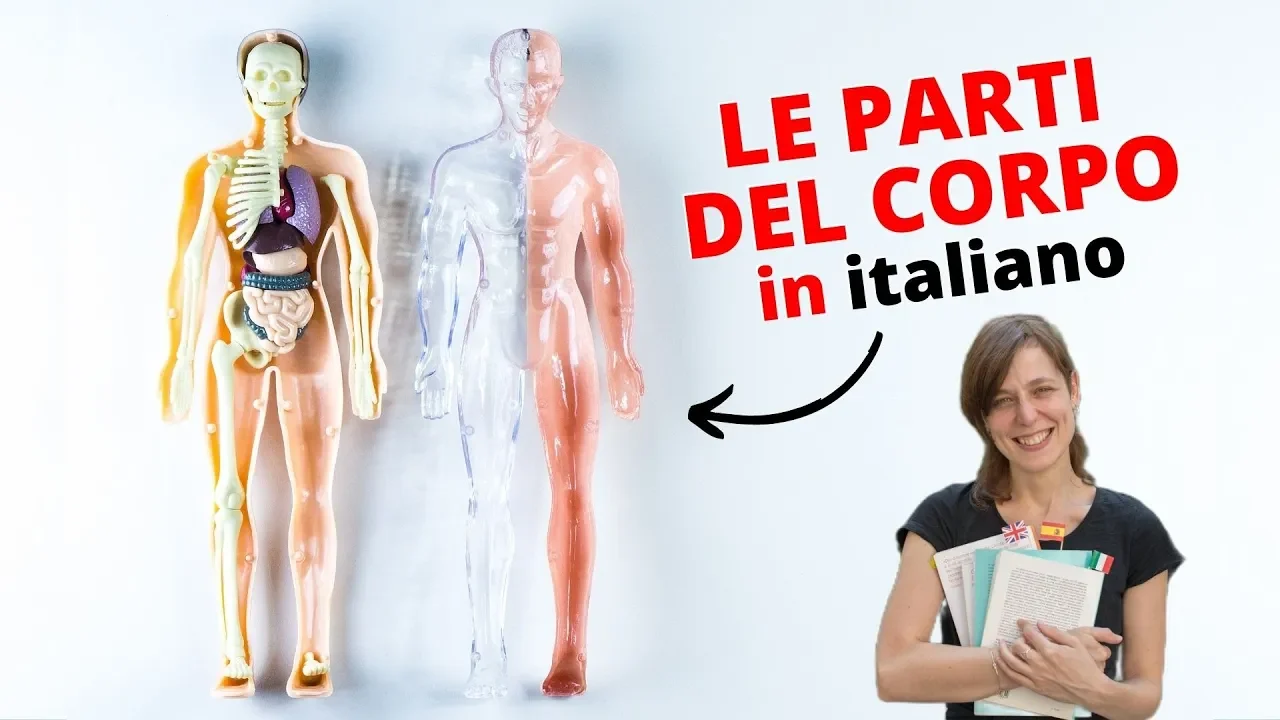
What I have learnt from living abroad
15 February 2021
Prepositions of place A – IN
19 April 2023Verbi riflessivi e verbi reciproci

Questa mattina mi sono svegliata alle 7, mi sono alzata, mi sono lavata, mi sono vestita… (This morning I woke up at 7 a.m., got up, washed myself, got dressed…)and then I asked myself: what is it that my Italian students find difficult?
Of course, reflexive verbs!!!
I decided to write an article on this subject because it is something that my Italian students often find difficult to understand and remember.
And I don’t blame them. In many languages, in fact, reflexive verbs do not exist! But they are often used in Italian. So, let’s see how they work!
Reflexive verbs are formed with a pronominal particle (mi, ti, si, ci vi) plus a verb.
An example?
Mi sveglio. Where “mi” is the pronominal particle in the first person singular, I, and “sveglio” is the present tense of the verb svegliare.
If I say, “La mattina mi sveglio alle 7” (“In the morning I wake up at 7 o’clock”), what does this “mi” mean? It means “myself”. So: I wake up myself.
This particle, “mi”, serves precisely to express that the action REFLECTS on ourselves, that is, we are the object of the action, we are the one who is subjected to the action.
But we are also the doer of the action! So, we can say that we are subject and object at the same time.
Another example? The verb vestirsi (to dress).
“Mi vesto” is like saying “I dress myself”, “ti vesti” is like saying “you dress yourself”.
Reflexive verbs are widely used to describe daily routines, but not only!
Can you think of some of these verbs you use a lot?
I use addormentarsi (fall asleep), abituarsi (get used to it), annoiarsi (get bored), cambiarsi (change of clothes)… and there are many more!
The complete conjugation of svegliarsi (to wake up) in the presente indicativo tense is:
io mi sveglio
tu ti svegli
lui/lei si sveglia
noi ci svegliamo
voi vi svegliate
loro si svegliano
What about the passato prossimo tense? Which auxiliary do we use, essere (to be) or avere (to have)?
With reflexive verbs we always use the auxiliary ESSERE.
Mi sono svegliato (I woke up), mi sono addormentato (I fell asleep), mi sono lavato (I washed myself)…
Consequently, the past participle agrees in gender and number with the subject.
Maria si è svegliata (feminine singular)
Paolo si è svegliato (masculine singular)
Le mie amiche si sono ricordate (feminine plural)
I miei amici si sono ricordati (masculine plural)
What about incontrarsi? Is this a reflexive verb?
It might seem so. In fact, incontrarsi is a reciprocal verb.
The verbi reciproci also want a pronominal particle, but this has a different meaning from the previous one.
If I say: Ieri sera io e Pietro ci siamo incontrati (Peter and I met last night), this ci means that “I met Peter” and “Peter met me”.
The same applies to the verb abbracciarsi.
Mario e Anna si abbracciano means that “Mario embraces Anna” and “Anna embraces Mario”.
At the same time, both perform the action of hugging.
The action is therefore reciprocal, in the sense that we make an action towards a person who at the same time does the same action towards us.
What are some other reciprocal verbs? Salutarsi (to greet each other), scriversi (to write to each other), telefonarsi (to phone each other), vedersi (to see each other), innamorarsi (to fall in love).




